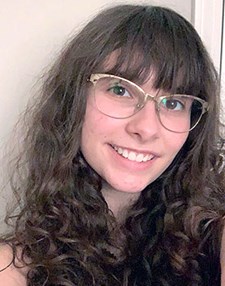Computer science puts you at the forefront of exciting, in-demand, and highly paid careers in computing technology. As a computer science major at USI, you will develop creative skills in critical thinking and analytical problem solving while learning fundamentals of computer and programming logic, security, data sciences, software development and algorithm design before specializing in greatly sought-after fields such as cybersecurity, data analytics, software engineering, artificial intelligence, web development, networking and database management. The USI computer science curriculum also makes it easy to include elective courses in entrepreneurship, cybersecurity, data analytics, computer information systems (CIS), graphic arts, mathematics and electrical engineering.
What differentiates the USI computer science program from other universities?
Our computer science program is uniquely housed in a business school. Students not only dive deep into computer fundamentals, but they can take elective business-related courses such as entrepreneurship, management, agribusiness and drones—enhancing their marketability in an ever-changing job market. Students gain additional education from participating in case competitions and joining computer clubs. The CyberSecurity Operations Center (SOC) is a hands-on learning lab where students monitor and intervene in cybersecuity threats to the University. The program culminates in a capstone Senior Project course that solves an actual computer-related challenge for a business or organization, at the local, national, or international level. Projects have included developing self-flying drones, databases, e-business solutions, artificial intelligence, and interactive maps.
The computer science program has 12 hours of directed electives which count toward a CyberSecurity Certificate, a Data Analytics for Business Certificate, or other areas of student interest.
The computer science program at USI currently has more than 200 declared majors, four full-time faculty members and an average class size of 23. Computer science students are eligible for scholarships, take 48 hours of computer science, electrical engineering and CIS courses, and have 12 hours of electives.
Everything has a business side
No matter what kind of working environment you are looking for, there is a computer science job for you. The U.S. Department of Labor forecasts above-average job growth for computer and information technology occupations through 2024 and beyond. Our computer science alumni hold positions such as:
Our guidelines
 The Association of Computing Machinery (ACM), the world’s largest professional organization for educational and scientific computing, has produced a series of recommendations for university-level undergraduate computer science programs intended to guide, standardize and ensure breadth and depth of the content presented to students of such programs. The USI computer science program has adopted the ACM recommendations as its goals for producing well-prepared graduates. In particular, the USI computer science program strives to adhere to the ACM Computer Science Curriculum 2013 Chapter 3 paragraph, “Characteristics of Computer Science Graduates”. To ensure conformity, the computer science program self-monitors its courses and course content by comparing course topic matter and level of exposure to ACM recommendations. The computer science faculty compared offered content to ACM CC2001, ACM CS2008 and ACM CS2013.
The Association of Computing Machinery (ACM), the world’s largest professional organization for educational and scientific computing, has produced a series of recommendations for university-level undergraduate computer science programs intended to guide, standardize and ensure breadth and depth of the content presented to students of such programs. The USI computer science program has adopted the ACM recommendations as its goals for producing well-prepared graduates. In particular, the USI computer science program strives to adhere to the ACM Computer Science Curriculum 2013 Chapter 3 paragraph, “Characteristics of Computer Science Graduates”. To ensure conformity, the computer science program self-monitors its courses and course content by comparing course topic matter and level of exposure to ACM recommendations. The computer science faculty compared offered content to ACM CC2001, ACM CS2008 and ACM CS2013.
Why I Chose Computer Science

“I chose Computer Science as a major because I love using programming to create new and interesting projects. Computer Science gives me the tools to creatively problem solve in my day to day life.” - Kaylee '21
Graduate Survey Data
Earnings and employment data of USI graduates, compiled by USI Career Services in coordination with the Office of the Registrar.


The Romain College of Business has partnered with the Pott College of Science, Engineering, and Education and the SwISTEM Resource Center to bring Girls Who Code to the USI campus as an educational outreach opportunity for area students in the sixth to eighth grade.
Read about the successful first semester of Girls Who Code.